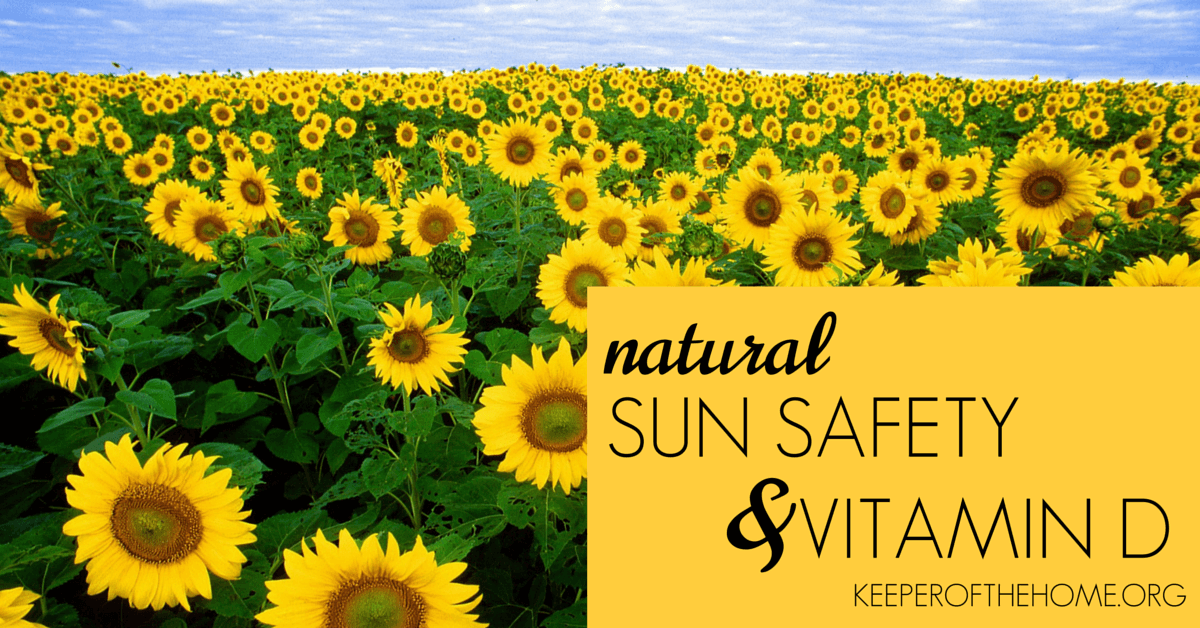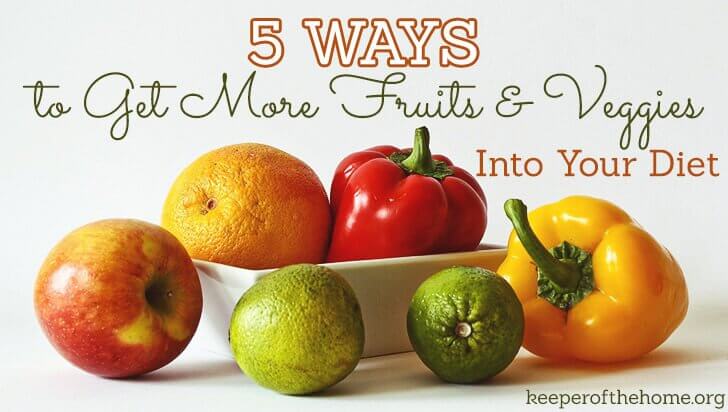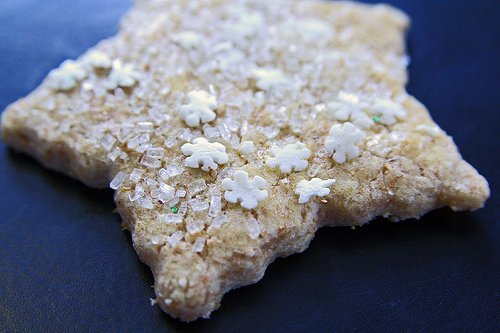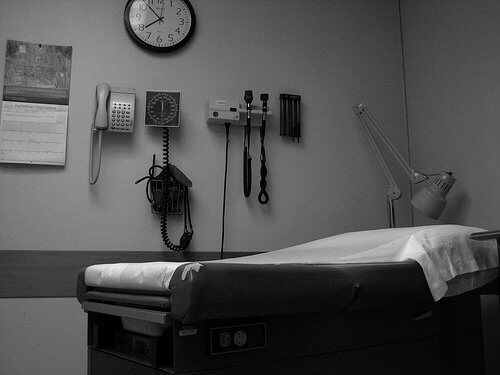Natural Sun Safety and Vitamin D
So if vitamin D is so important, how do you approach natural sun safety? Here are some tips and insights to help you with that!
Vitamin D, the sunshine vitamin, as it is so affectionately called in some circles, is so intensely and profoundly important to our overall health. And a little bit of it carefully obtained does a lot of good.
As we have learned in the last three posts in this series, we can choose to ignore it or fear it and stay out of the sun like many would have us believe, or we can learn from history and educate ourselves on the importance of this vitamin-turned-hormone and learn the best and safest ways to incorporate it into our lives and bodies as the necessary and essential substance it is.
Before we go any further, I think we can all agree that it is never OK to get sunburned. Sunburns are just outright painful and they increase your risk of skin cancer and sun-poisoning.
I know many people fear sunlight because of its potential cancer risk. But interestingly, “the one vitamin the sun helps supply can actually protect against skin cancer. Optimal vitamin D levels can help reduce the risk of melanoma and help protect against other cancers” [source].
Remember that I’m choosing to share this information with you due to my own experience with a vitamin D deficiency. My health significantly declined and it has taken quite some time to fill my tank back up to optimal levels.
When I learned that most people in the U.S. are thought to be vitamin D deficient, I wanted to share what I have learned through this process in hopes of helping others understand the importance of getting out in the sunshine.
I encourage you to work with your physician to monitor your levels of vitamin D and also to visit your dermatologist regularly, especially if you notice any unusual moles or other skin irritations.
Getting the right amount of sunshine therapy depends on several things:
- The time of day – your skin produces more vitamin D if you expose it during the middle of the day.
- The season or time of year – the sun is stronger in the summer.
- The place you live – the closer you live to the equator, the easier it is for you to produce vitamin D from sunlight all year. I moved further away from the sun a few years ago, contributing to the deficit I experienced.
- The color of your skin – pale skin makes vitamin D more quickly than darker skin.
- The amount of proper skin exposed – the more skin you expose, the more vitamin D your body produces.
It’s important to understand these factors when determining the right amount of exposure for yourself and for your family. I can’t tell you, nor would I try, that I know what is the best amount of sun exposure for you. There is no all-inclusive answer for everyone and I am not an expert.
5 strategies for natural sun safety:
1. Work yourself up to getting at least 20 minutes of sunlight exposure a day or at least a few days a week between 10:00 AM-2:00 PM. When starting sunlight therapy, be sure to limit sun exposure. Depending on the factors above you may need to start with just a few minutes, especially if it is summer time and you are fair skinned.
2. Protect your face and eyes as that area of skin is thinner and doesn’t really aid in vitamin D production. Wearing a wide brim hat like this sweet one for baby is ideal. Also make sure to wear sunglasses.
3. Wear light, protective clothing that covers the skin if you plan to be outside longer than the appropriate amount of time. This has been show to reduce the risk of burn by 27%.
4. Seek shade under a tree or even use a parasol when out walking! I always see this when traveling in other countries, but rarely here at home. Let’s start a trend!
5. Do NOT just slather on the sunscreen. Not only does it ‘block a whopping 97% of your body’s vitamin D production’ [source], but most commercial brands contain cancer causing chemicals.
If you do choose to use sunscreen, scrutinize ingredients and avoid using creams, sun block, and cosmetics that contain paraben, petrochemicals, lead, or other toxins. These drugs and chemicals are absorbed into your body through your skin.
A good rule of thumb: If you wouldn’t eat it, don’t put it on your skin. According to the EWG, sunscreen should be your last resort when going into the sun.
Allow the necessary amount of time to get your sunshine vitamin first, then choose wisely how you protect yourself from overdoing it and getting a burn.
Try making your own sunscreen.
There are many DIY sunscreen recipes on the internet with natural ingredients. If you are headed to the beach for Spring Break and know you’ll be sunbathing or just out in the sun way more than you are used to, find a recipe with some of these natural SPF oils:
- Coconut oil has a natural SPF of 8
- Pomegranate oil has a natural SPF of about 20
- Zinc oxide’s natural SPF is up to about 20
Do some research on these oils to learn more about them or research sunscreen on the market that contains these natural oils. Purchase sunscreen with ingredients that you can feel good about applying on yourself and your family. Your skin is the largest organ of your body, so be sure to nourish it well!
And if you get a little pink…use aloe vera gel, of course!
What natural steps do you take to prevent sunburns?
Read our other vitamin D posts:
- To Stay out of the Sun or Not: Learning the Truth about Vitamin D
- Vitamin D Has Quite a History
- Benefits of Vitamin D and How I’m Getting My Daily Dose
- Everything You Need to Know About Vitamin D in 600 Words
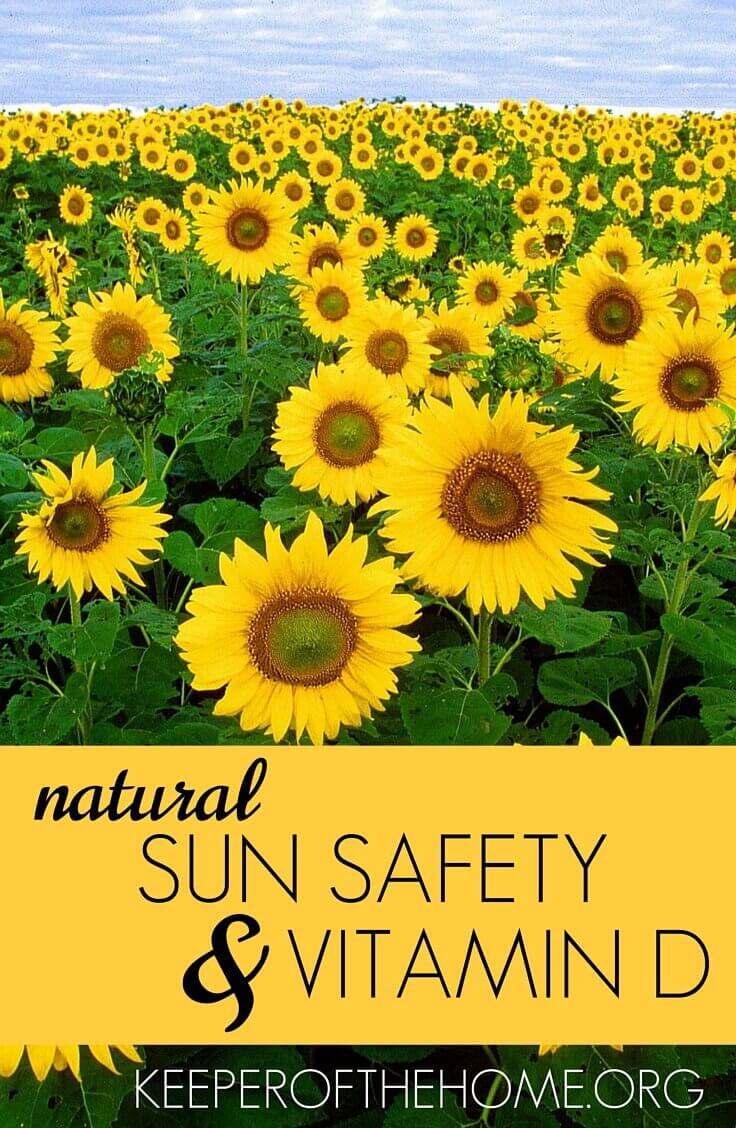
Here are a few additional sources:
-
http://articles.mercola.com/sites/articles/archive/2012/03/26/maximizing-vitamin-d-exposure.aspx
-
https://www.vitamindcouncil.org/about-vitamin-d/how-do-i-get-the-vitamin-d-my-body-needs/
Disclaimer: Although all Keeper of the Home contributors are passionate about nutrition, natural living and alternative health issues, we are not certified nutritionists, medical doctors, or practitioners of any kind. We are not licensed to counsel anyone in medical matters, nor may we be held responsible for any course of action that you choose in regards to your own health or that of your family. Please remember that what we are sharing is the result of our own experiences and years of study, but may not necessarily be the right course of action for you. We are advocates of becoming informed, knowledgeable and responsible for one’s own health, but our desire is not to be an authority on any matters of health for you, nor would we presume to have sufficient knowledge to do so. Our hope is that what we share may encourage you and start you on the road to doing your own research, and seeking out the opinions of professionals or others that you trust.

